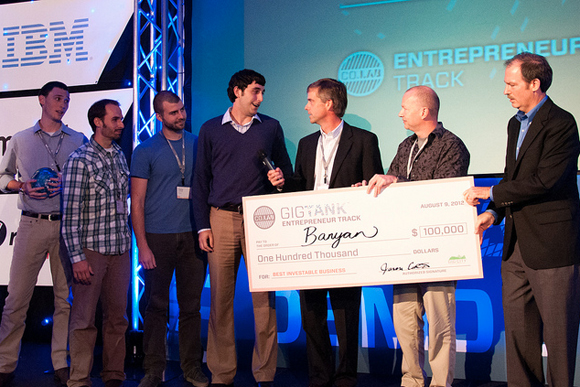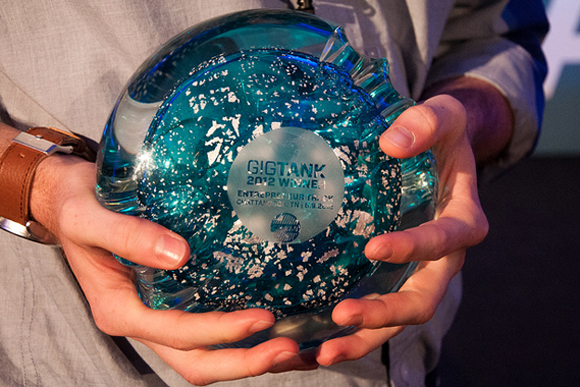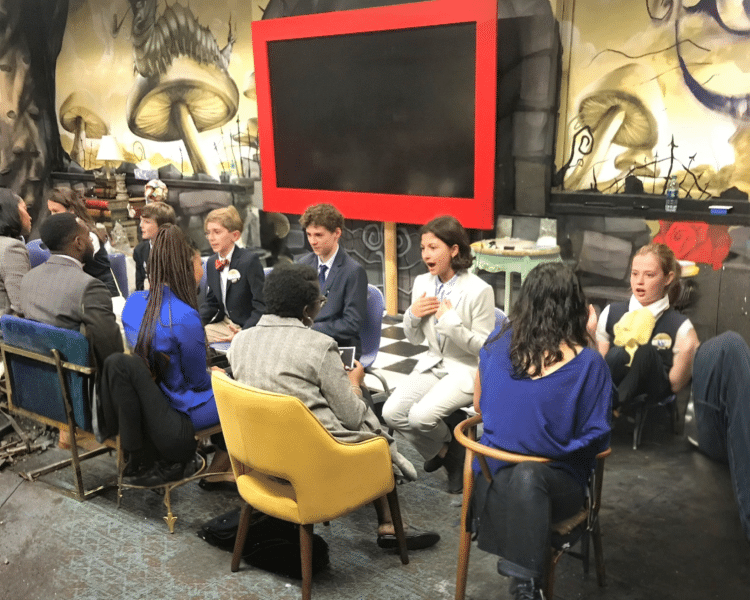Banyan: St. Pete Start-Up Wins Top Prize In Tennessee Competition
Banyan aims to speed up major medical breakthroughs by enabling data from scientific research to be shared more easily. Major hospitals and universities — USF Health, the University of Chicago, Carnegie Mellon and others — are already on board.
Toni Gemayel, founder of a new St. Petersburg-based start-up called Banyan, often wears a white T-shirt with the logo Zoohost imprinted on it. It’s a reminder to himself of his own previous company that failed.
Why do that, especially when pitching his new company in front of potential investors?
It’s a clear message: Take no venture for granted.
That learn-from-experience winning attitude paid off big time in August when Gemayel and the rest of the Banyan team walked away with the top cash prize of $100,000 at GigTank Demo Day in Tennessee.
The award recognized Banyan as “the most investable business” at the competition, where entrepreneurs pitch their ideas to a panel of judges in front of an audience of venture capitalists and angel investors.
The judges — representatives from big companies like IBM, Mozilla and Alcatel-Lucent — applauded Banyan’s efforts to bridge the communications gap between researchers and scientists around the globe.
Banyan’s cloud-based version control system for collaborative research allows users to correspond through private messaging, comparing research and sharing files, among many other features. In other words, the system is ultimately a tool to track progress in the medical field and test new theories as they match up to older ones.
“We want to change the world by empowering scientists to be more efficient,” says Gemayel.
It Takes A Team
The Banyan team consists of Gemayel, developer Travis Staton and designer TJ Weigel — three 20-somethings who met while attending classes at the University of South Florida St. Petersburg. They and research assistant Kristina Gemayel (Toni’s sister) and adviser Michael Bradshaw, an adjunct professor at the University of Tennessee, envision Banyan contributing to the cure of cancer or some other major disease or assisting in a medical breakthrough.
“The project grew in St. Pete and we have access to a number of huge hospitals that will hopefully be using Banyan soon,” says Weigel. “It feels like home here.”
Banyan is named after the Banyan trees in North Straub Park in downtown St. Petersburg, which grow enormous by continually throwing off new branches into dangling or crawling roots, creating new trunks / new trees. The product works the same way; a master theory or formula is planted, and users are allowed to add more branches without interfering with the host.
“Banyan allows researchers to create a team, build a repository and upload research,” says Gemayel. “On a line-by-line basis, you can see what each team member has removed, added or modified.”
Major universities including USF Health, the University of Chicago, the University of Toronto and Carnegie Mellon in Pittsburgh are already using Banyan.
Small Investment Pays Big Dividends
As part of the GigTank competition, $15,000 was invested in Banyan over four months while the team developed the product.
The additional cash infusion from the Tennessee prize means the company can now focus on making their product easier to use and on hiring more team members. Banyan is seeking $750,000 in funding by the end of 2012.
The next step for Banyan is to launch a desktop client, which will allow them to open up to the mass market. Since their current software can be used by only a small fraction of scientists and researchers, the desktop client will be designed to make the product more easily accessible to users of all skill levels.
“Whether you are a 19-year-old freshman or a 55-year-old professor who has been working in research your whole life, the desktop client will be so simple and intuitive, anyone can use it,” says Gemayel.
Charlie Brock, executive entrepreneur at CO.LAB (a co-sponsoring organization of the GigTank), says that Banyan is capable of transforming the way researchers collaborate.
“Banyan already has established a solid customer base with users in 10 different countries,” says Brock. “That speaks volumes. It’s an entirely new ecosystem for researchers. Banyan’s product will become an integral part of the industry in the very near future.”
Meghan Hoodhood is a graduate of the University of South Florida, St. Petersburg with a degree in Mass Communications and a concentration in Journalism and Media Studies. Comments? Contact 83 Degrees.














